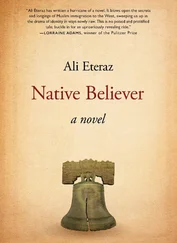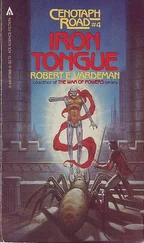Manual for Beginners, page 71 Chornyak Barren House
WINTER 2179...
Aquina Chornyak was bored. It was a boring negotiation, on a boring contract, for a boring treaty amendment, with a set of almost stupefyingly boring Aliens-in-Transit. You never expected an A.I.T. to be exactly stimulating company — that wasn’t what they were on Earth for, in the first place, and there was no reason to anticipate that what a Terran found stimulating would be anything they found stimulating, or vice versa, in the second place — but sometimes there were a few glimmers of interest in the waste of bureaucratic drivel.
Not this time. The Jeelods were so nearly Terran in physical appearance that it was hard to remember they were A.I.T.s… no amusing tentacles or tails, no pointy ears, no twin noses. Not even an exotic mode of dress to provide diversion. They were short and they were stocky, a bit more square than was typical with Earth humanoids, and they had long beards. And that was it. In their baggy coveralls they looked like a trio of… oh, maybe plumbers. Something of the kind. It was boring. And who cared (except the Jeelods, of course, since if they hadn’t cared they wouldn’t have demanded the negotiation), who cared if the containers Terra shipped them weapons in were blue or not?
They cared. They’d made that clear. Blue, they had said, was a color shocking to every Jeelod, an insult to the honor of every Jeelod; it was a twx’twxqtldx matter. Aquina could not begin to pronounce that, but she hadn’t had to; she was here only as backup and social translator for Nazareth, who was the native speaker of REM34-5-720 for Earth. Nazareth could say it, as easily as she might have said “twaddle.” And Nazareth had tried patiently to explain what the word meant.
If Aquina understood it correctly herself, making those shipping containers blue was about equivalent to the Jeelods having shipped freight to Earth in containers smeared with human feces… curious how the same idiot taboos turned up in so many humanoids from all over the universe. But the Jeelods weren’t going to participate in handling the matter the way two Earth cultures would have done it, in a similar situation.
“You mean making the containers blue is like smearing shit all over them?”
“Damn right!”
“Jeez, we didn’t know. Our apologies, okay? What’s a color that’s okay with you guys?”
“Make ’em red.”
“You’ve got it.”
And the meeting would be over. No… there was clearly something else going on here, and it couldn’t be done that way. (And to be honest, there were Earth cultures that couldn’t have done it that way either.)
Every time Nazareth tried to explain it, speaking first in flawless REM34-5-720 to the Jeelods, and then in flawless English to the representatives of the U.S. Government, the same thing happened. The Jeelods went pale, turned their backs, sat down on the floor, and covered their heads with their hands — a position, Nazareth said, indicating that they were not present in any legal sense of the word. These periods of legal absence lasted, per Jeelod cultural imperatives, exactly eighteen minutes and eleven seconds. After which they would seat themselves at the conference table again and Nazareth would give it another try. Poor kidling.
If she was bored, Aquina thought, at her age, Nazareth must be at the end of her tether completely. Eleven is not a patient age, even for a child of the Lines. And unlike the men from the State Department, who had started going out for coffee for exactly eighteen minutes and three seconds every time it happened, Nazareth had to stay there in the room. No telling what the A.I.T.’s would have offered up as reaction if their interpreter had left the room during their ritual of insult.
They were fifteen minutes and a bit into the latest episode, and Aquina sighed and considered going for coffee herself; as mere backup, she could presumably be spared. But it would be complicated, since she’d have to find an agreeable male to escort her. And it wouldn’t be kind… She was fond of Nazareth, who was something pretty special in eleven-year-old girls. Aquina glanced at her fondly, wishing she could tell her a joke or something to ease the tedium, and saw that the child had her head bent in total concentration over a small pad of paper. Scribbling something on it, with the tip of her tongue sticking out between firmly clamped lips. Aquina touched her gently to get her attention, and then she signed a question at her; with their backs turned, the Jeelods would never know that the Terrans were using sign language.
“You drawing, sweetlove? Can I see?” she signed.
The child looked uneasy, and her shoulders curled protectively toward whatever it was.
“It doesn’t matter,” Aquina signed. “Never mind — I didn’t mean to pry.”
But Nazareth smiled at her and shrugged, signing. “That’s okay,” and passed her the little tablet to look at.
Now that she had it, Aquina didn’t know what she had; it wasn’t drawings, certainly. It appeared to be words, but no words she’d ever seen before. Nazareth would be far ahead of her in REM34-5-720, because it was her responsibility to be far ahead — it was her native language, as much as English and Ameslan were. But these words couldn’t be REM34-5-720. Aquina knew the rules for word-formation in the language… these were something else.
“They’re Encodings,” signed Nazareth, seeing her puzzlement.
“What?”
“Encodings,” Nazareth fingerspelled it, to be sure of it, and Aquina stared at her open-mouthed.
Encodings! What on earth —
Before she could ask, she heard the swift hiss of clingsoles behind her, the State Department men were coming back. Nazareth sat up straight in the interpreter’s booth, where she and Aquina were sufficiently hidden from view to spare the delicate egos of the males the humiliation of really seeing the women… on whose services they were completely dependent in this interplanetary transaction. Nazareth’s whole attention was on the Jeelods and their Terran counterparts, and she left the little tablet in Aquina’s hands. Nazareth knew her obligations, and she fulfilled them. Aquina heard her speaking, easily producing the impossible consonant clusters with their impossible modifications of clicks and glottalizations and squeaks, trying to find a way of expressing their objections that would not force them to be “absent” from the negotiations again.
Which left Aquina free to study the tablet, casually at first, and then with a steadily increasing excitement. Encodings, the child had said! New language shapes, for concepts not yet lexicalized in any known language… Encodings, Capital-E, was that?
She stared at the neat symbols; children of the Lines, trained to do phonetic transcription by the age of six, did not produce anything but tidy symbols. The words themselves she recognized now — they were Nazareth’s attempts at Langlish, and they were pathetic. Given the resources that Langlish offered to a coiner of words, they were bound to be pathetic; and given the very very little that Nazareth could know about Langlish, they weren’t even top quality pathetic. But she was excited nevertheless.
It was the concepts themselves, the semantics of the forms that Nazareth was trying to make speakable; they made her heart race. They might well exist in some language she did hot know about, sure, and that would have to be checked; but then again they might not. And if they didn’t, well — if they didn’t, they were like finding a carteblanche disc on the slidewalk, with nobody around to see you pick it up. It would be easy enough, now that Nazareth had written down the semantics, to put the proper shapes to them, to make them words…
Читать дальше












